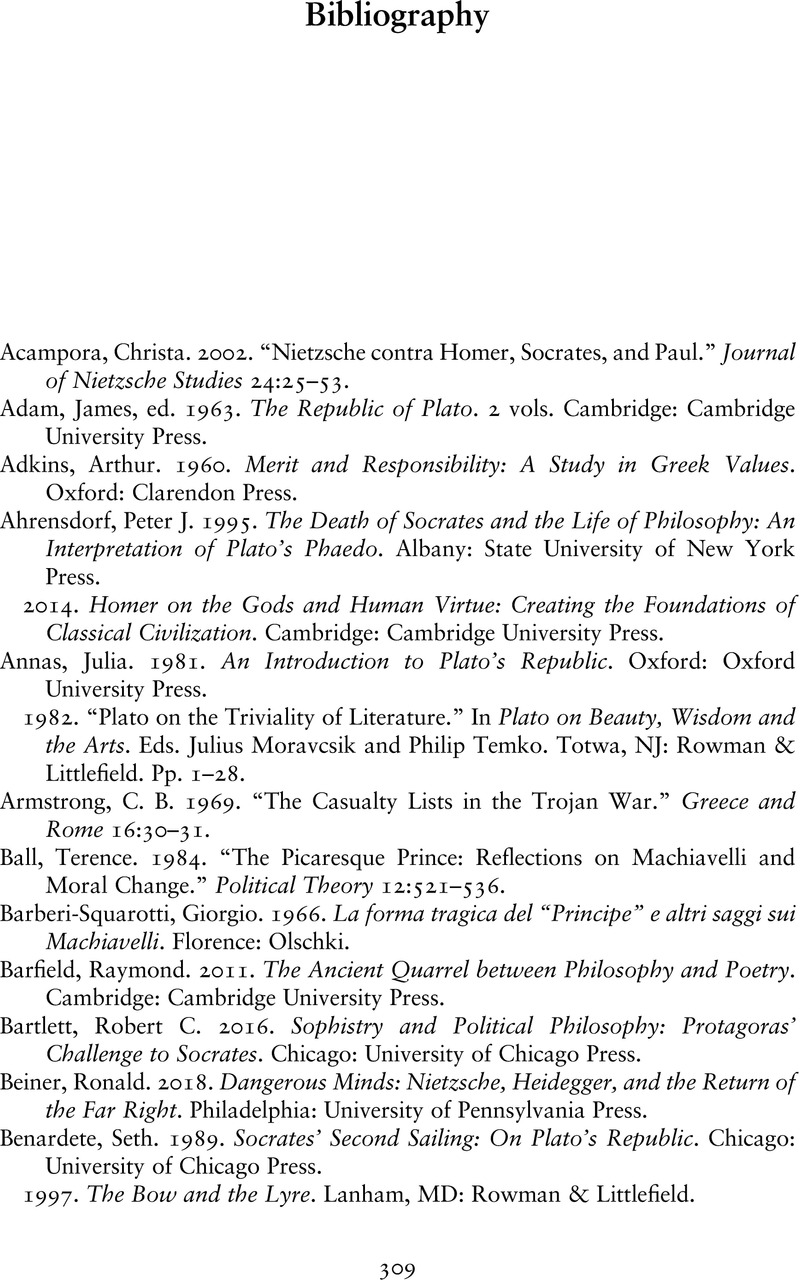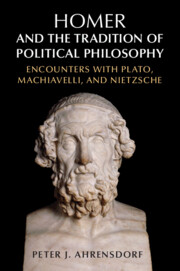Book contents
- Homer and the Tradition of Political Philosophy
- Homer and the Tradition of Political Philosophy
- Copyright page
- Dedication
- Contents
- Acknowledgments
- Introduction
- 1 The Contest between Homer and Plato and the Homeric Education on the Gods
- 2 The Homeric Education in Human Excellence
- 3 Plato’s Critique of the Homeric Education
- 4 Homer and Machiavelli on Education and Human Excellence
- 5 Nietzsche on the Contest between Homer and Plato
- Conclusion
- Bibliography
- Index
- References
Bibliography
Published online by Cambridge University Press: 18 August 2022
- Homer and the Tradition of Political Philosophy
- Homer and the Tradition of Political Philosophy
- Copyright page
- Dedication
- Contents
- Acknowledgments
- Introduction
- 1 The Contest between Homer and Plato and the Homeric Education on the Gods
- 2 The Homeric Education in Human Excellence
- 3 Plato’s Critique of the Homeric Education
- 4 Homer and Machiavelli on Education and Human Excellence
- 5 Nietzsche on the Contest between Homer and Plato
- Conclusion
- Bibliography
- Index
- References
Summary

- Type
- Chapter
- Information
- Homer and the Tradition of Political PhilosophyEncounters with Plato, Machiavelli, and Nietzsche, pp. 309 - 319Publisher: Cambridge University PressPrint publication year: 2022



